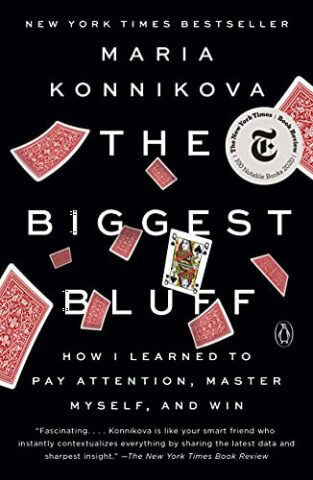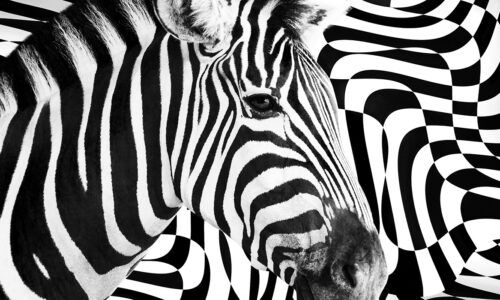How to make the best decisions (event when you don’t hold the cards)
Winners in poker aren’t the players with the best hand, but people who best adapt to the hazards of chance and their opponents’ bluffs. In today’s uncertain environment, a few poker lessons may be your best guide.
Maria Konnikova, a journalist and psychology graduate from Columbia University, set herself a special challenge in 2016: to learn how to play poker so she could explore decision-making processes in a context where nothing is certain. And her bet paid off: two years later Konnikova had won a major professional poker tournament, hundreds of thousands of dollars and demonstrated that the strategies of the top poker players can be used to optimize the choices we make in volatile environments.
As mathematician John von Neumann, the author of Theory of Games and Economic Behavior, once noted, poker reflects the complexity of life. Unlike Russian roulette, poker isn’t about pure chance: mathematical logic plays a role. Unlike chess, however, poker cannot be modeled by an algorithm: the bluffing aspect – the human, psychological dimension – plays a decisive role. This means that the player holding the best hand wins only 12 percent of the time.
Having good cards isn’t enough in itself: it’s the best strategist who wins, even with a poor hand. Maybe you don’t hold all the cards but still want to increase your chances of winning? Then watch the poker pros closely.

The Biggest Bluff by Maria Konnikova, (Harper Collins, june 2020).
Find out what is really in your control
The first principle in an uncertain environment – and at the poker table – is to focus on what you can control and let go of what you can’t. But it’s difficult to assess what you can actually control: your brain overestimates your responsibility when you succeed and underestimates it when you fail. Success gives an illusion of mastery, as shown by Harvard psychologist Ellen Langer1: when students win a coin toss several times in a row, they think they have an unsuspected talent – even though only dumb luck was involved.
When faced with something new, we cheerfully switch from the cautious approach of a beginner to false certainty after only a few hours of study2: this overconfidence prevents us from assessing our true level of mastery clearly. When it comes to our failures, on the other hand, our brains tend to attribute our failures to bad luck. This is a mistake: positioning ourselves as victims of external circumstances disempowers us and locks us in a spiral of self-fulfilling prophecies.
1 “Heads I win, tails it’s chance : the illusion of control as a function of the sequence of ouctomes in a purely chance task” by Langer, E. J and Roth, J. , (Journal of Personality and Social Psychology, 1975).
2 “Unskilled and Unaware of it: How Difficulties in recognizing one’s own incompetence lead to inflated Self-assessments”, by Justin Kruger and David Dunninf, (Journal of Personality and Social Psychology, 1999).
3 Bank of Sweden Prize in Economics in 2002, equivalent to the Nobel Prize.
4 “Capture Success and Efficiency of Dragonflies Pursuing Different Types of Prey”, by Combes SA, Salcedo MK, Pandit MM and Iwasaki JM. (Integrative and Comparative Biology, 2013).
5 “5 Signs of Lying That Aren’t as Foolproof as You’d Think” by Temma Ehrenfeld, (PaulEkmanGroup, november 2015).
6 “Closing your eyes to follow your heart: Avoiding information to protect a strong intuitive preference” by Kaitlin Woolley and Jane L Risen, (National Center for Biotechnology Information, 2018).
© Copyright Business Digest - All rights reserved




